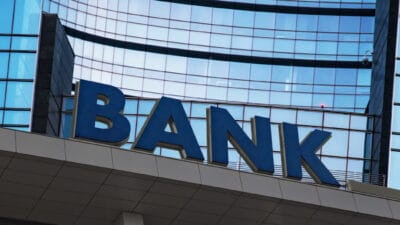Unless you've just emerged from hibernation — in which case, good morning! — you'll know that most retailers are struggling, to say the least…
Here's an excerpt from an article in The New Daily, titled 'Retail apocalypse: Bricks-and-mortar stores are disappearing':
Retailers across Australia are shutting up shop, as rents skyrocket and time-poor, dollar-conscious consumers opt for the internet over their local high street.
Over the next year, 1.3 per cent of consumer goods retailers are expected to close as physical stores struggle to compete with the low prices, vast range and ease of online shopping.
Meanwhile, once-mighty department stores are in the midst of a mass extinction, with only one of the two major players, Myer and David Jones, expected to survive.
Skyrocketing rents aside, you'd be forgiven for thinking this was penned after the onset of the COVID-19 lockdowns and social distancing.
Not so.
Pandemic hits ASX retail shares when they're down
In fact, the article was published on 21 August 2019. That's almost 7 months before the coronavirus saw many physical stores in Australia forced to shut their doors or sharply limit the number of customers allowed inside at any given time.
All the negative ramifications associated with controlling the pandemic hit these retailers when they were already wobbly.
Over in the United States, big name brands including JCPenney and Neiman Marcus are just some of the brick-and-mortar focused retailers that have already filed for bankruptcy since the onset of the global shutdowns.
Here in Australia, swimwear brand Seafolly, with 44 stores across the country, entered voluntary administration at the end of June, citing COVID-19 as the final straw. And with the renewed lockdowns in Victoria and possible return to more stringent distancing measures in New South Wales and other states, even some of the most successful traditional retailers are struggling.
Harvey Norman Holdings Limited (ASX: HVN), for example, has seen its share price drop 13% year-to-date.
Myer Holdings Ltd (ASX: MYR) has fared far worse, with Myer shares falling 58.33% so far in 2020.
But not every retailer is feeling the pain.
No social distancing required
According to data from the Bank of America, US Department of Commerce and ShawSpring Research, e-commerce in the US grew from 16% to reach 27% of total retail sales in March and April of 2020.
That's almost a doubling of its market share in only 2 months. And it's seen stocks like the US$1.5 trillion (AU$2.1 trillion) Amazon.com, Inc. (NASDAQ: AMZN) gain an astounding 58.1% since 2 January.
In Australia, the surge in online shopping has been a similar boon for a select group of retailers with strong e-commerce platforms. Here are 2 I think you should consider adding to your own portfolio.
First, there's Carsales.Com Ltd (ASX: CAR). The online car retailer's share price plunged 45.2% from 12 February to 23 March before making a sharp recovery. It's gained 78.6% since that low. Year-to-date, the Carsales share price is up 11.4%. And this comes during Australia's first recession in 29 years!
The fact of the matter is most Australians need cars. Even if you live in one of the major cities, you need a car to get outside the sprawl. And the impact of COVID-19 on people's comfort using public transportation is likely to last long beyond the virus itself.
Those predicting the death of the car (be it electric, petrol, or what have you) will almost certainly be proven wrong. Even the trendy concept of 'shared cars' is unlikely to bounce back quickly. In a world rocked by the novel coronavirus and gripped by fears of future pandemics, it's likely many drivers will stick to the comfort of their own vehicle.
Second, we have Kogan.com Ltd (ASX: KGN). The Kogan share price is up a whopping 119.4% in 2020.
Yes, that means it would have been great to get into the stock at the beginning of the year. But if you're playing the long game, which I recommend, then I think the Kogan share price could have a lot more growth ahead. Even under some of the rosier scenarios, it's likely Australians will be dealing with some form of social distancing or another for at least another 12 to 18 months. (Don't shoot the messenger!)
And people are creatures of habit. When all the virus-related restrictions are finally lifted, and they will be eventually, many consumers will keep buying most of their stuff online.
The e-commerce trend is already well established. And it's only likely to grow from here.









